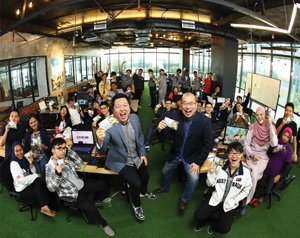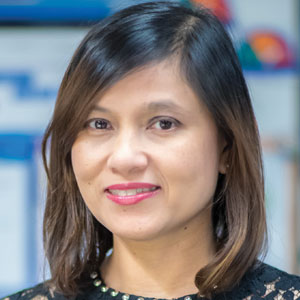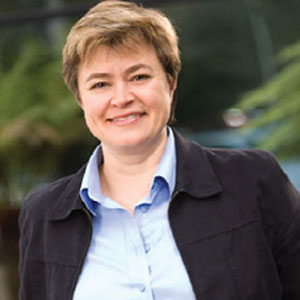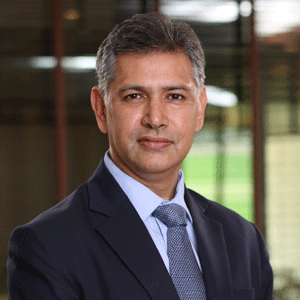THANK YOU FOR SUBSCRIBING
 Kenny Lum, CEO
Kenny Lum, CEOThe traditional learning practices of many organisations are solely enhanced with fun features like points, badges, and leaderboards. However, Gameka stands out in this field by adopting a distinctive approach. Its game-based learning platform effectively facilitates skill development by engaging users in the gameplay.
Gameka’s technology enables real-time multiplayer interactions, allowing learners to engage with other players in the field. This dynamic learning approach will enable learners to apply the skills in real-world situations, enhancing the practicality and effectiveness of the learning experience.
The company is at the forefront of digitalisation by combining gamification mechanics with a strong team of advocates to nurture creativity, talent, and respect amongst its peers. The leading provider of custom-designed games assists corporate businesses and universities across Malaysia to bolster their people development program through game-based training.
 Gameka focuses on creating engaging and educational games that increase the knowledge of corporate employees in business-related topics. From finance to pricing strategy, business operations to talent management, and entrepreneurial skills, Gameka’s unique solutions simulate real-world corporate scenarios.
Gameka focuses on creating engaging and educational games that increase the knowledge of corporate employees in business-related topics. From finance to pricing strategy, business operations to talent management, and entrepreneurial skills, Gameka’s unique solutions simulate real-world corporate scenarios. The firm develops game-based training programs using a highly customised approach, recognising unique client requirements. The initial stage of client collaboration at Gameka involves conducting workshops with stakeholders from various departments, both internal and external. The purpose of these workshops is to gather input from the stakeholders regarding challenges faced and goals they aim to achieve.
Based on the inputs gathered, Gameka develops prototypes for the client. Stakeholders then test these prototypes over a month, allowing for constructive feedback about the required improvements. This iterative process ensures the final product aligns with the client’s vision and requirements.
Through this approach, the firm emphasises the importance of developing a prototype as the first milestone instead of just providing images or mock-ups. This further allows clients to test the game before proceeding further, minimising the risk of unmet expectations.
Following the prototype testing phase, Gameka develops the alpha and beta versions, featuring enhanced functionalities and a refined user interface and user experience (UI/UX) design. Similarly, a release candidate (RC) is tested and refined before being deployed to the main target audience. The entire process typically ranges from three to nine months, depending on the size and complexity of the project. Gameka analyses its past work to identify ways to execute projects faster through automation and development operations (DevOps).
“Corporates often approach game developers to gamify their learning content without having an in-depth understanding of how the game should be constructed,” says Kenny Lum, CEO of Gameka.
However, game developers lacking corporate experience fail to understand the intricacies of different industries. Consequently, they fail to deliver appropriate solutions and accurate project quotes. Gameka’s experience with similar situations led its team to recognise the importance of understanding corporate training’s specific requirements and language, such as performance tracking indicators (PTIs) and balanced scorecards. The firm creates synergies between game design and corporate training is crucial to surpass this challenge.
Kenny initiated his professional journey at Microsoft, where he refined his marketing, pricing, and customer management proficiencies. After that, he established his own company, gaining practical exposure in managing operations, sales, talent development, and financial strategies. This unique amalgamation of experiences and their ability to craft innovative games allows the firm to develop creative games. Similarly, Gameka’s strength lies in its diverse backgrounds, enabling its team to bring varied experiences from various fields.
For instance, a recent project undertaken by Gameka involved collaborating with a local university. The university intended to introduce a fully game-based learning program for one of its courses, specifically designed to educate students on entrepreneurial skills. The client had a clear vision for the project, requesting a simulation game that was both multiplayer and engaging for students. In contrast to other game companies approached by the university, who faced difficulties in conceptualising the game due to their unfamiliarity of entrepreneurial skills, Gameka’s team could precisely discern the client’s requirements. Upon being approached, the team collaborated with the professors and lecturers involved in the course, adapting their course content into a game that would engage students. The game’s development was carried out over a period of three months.
The combination of subject matter expertise, innovative technology, and practical application makes Gameka a leading player in game-based learning for business operations. Its platform, technology, and expertise enable the development of cost-efficient, engaging, and effective game-based learning experiences, driving real-world skill development and setting a new standard for digitalised learning programs.
Through this approach, the firm emphasises the importance of developing a prototype as the first milestone instead of just providing images or mock-ups. This further allows clients to test the game before proceeding further, minimising the risk of unmet expectations.
Following the prototype testing phase, Gameka develops the alpha and beta versions, featuring enhanced functionalities and a refined user interface and user experience (UI/UX) design. Similarly, a release candidate (RC) is tested and refined before being deployed to the main target audience. The entire process typically ranges from three to nine months, depending on the size and complexity of the project. Gameka analyses its past work to identify ways to execute projects faster through automation and development operations (DevOps).
“Corporates often approach game developers to gamify their learning content without having an in-depth understanding of how the game should be constructed,” says Kenny Lum, CEO of Gameka.
However, game developers lacking corporate experience fail to understand the intricacies of different industries. Consequently, they fail to deliver appropriate solutions and accurate project quotes. Gameka’s experience with similar situations led its team to recognise the importance of understanding corporate training’s specific requirements and language, such as performance tracking indicators (PTIs) and balanced scorecards. The firm creates synergies between game design and corporate training is crucial to surpass this challenge.
Corporates often approach game developers to gamify their learning content without having an in-depth understanding of how the game should be constructed
For instance, a recent project undertaken by Gameka involved collaborating with a local university. The university intended to introduce a fully game-based learning program for one of its courses, specifically designed to educate students on entrepreneurial skills. The client had a clear vision for the project, requesting a simulation game that was both multiplayer and engaging for students. In contrast to other game companies approached by the university, who faced difficulties in conceptualising the game due to their unfamiliarity of entrepreneurial skills, Gameka’s team could precisely discern the client’s requirements. Upon being approached, the team collaborated with the professors and lecturers involved in the course, adapting their course content into a game that would engage students. The game’s development was carried out over a period of three months.
The combination of subject matter expertise, innovative technology, and practical application makes Gameka a leading player in game-based learning for business operations. Its platform, technology, and expertise enable the development of cost-efficient, engaging, and effective game-based learning experiences, driving real-world skill development and setting a new standard for digitalised learning programs.

I agree We use cookies on this website to enhance your user experience. By clicking any link on this page you are giving your consent for us to set cookies. More info













